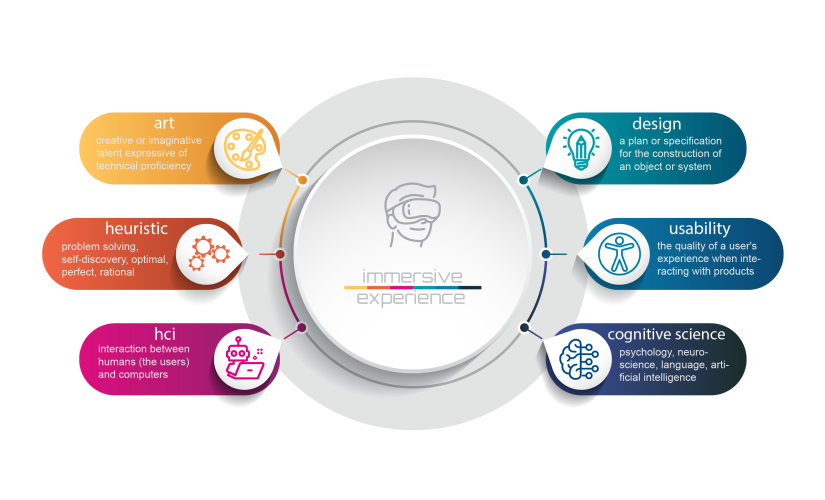We have named our latest project, The best practices for high-immersion experience design, after Abraxas - a mystical deity that in Hellenistic documents on magic appears as an example of magical logic and a synonym of wholeness. And that is exactly the kind of results we want the collaboration of a four-partner consortium to produce.
Lodz University of Technology is the leader who will enjoy the support and expertise in art design and cognitive science provided by researchers from Universidade de Aveiro in Portugal and Spanish universities: Universidad Miguel Hernández de Elche and Universidade de Vigo.
In the course of this new project, we will apply the experience we have previously gained.
The focus of this project is to raise the competence of future designers of immersive 3D experiences and their educators. To this end, practical teaching and learning toolkits will be designed, and supported with practical exercises that rely on virtual reality (VR) technology. As a result, 3D designers should gain a deeper understanding of cognitive needs of the user, which should then feed directly into their skills of crafting interactive environments for the Metaverse, i.e. coexisting multiple 3D virtual worlds whose realities are similar to the real world.
The project will involve several key activities, among them: development of the scope of the 3D experience course content, development of multimedia course content aided with proprietary VR tools, performing usability testing (e.g., summer school for students, testing with researchers). The chief outcome of the project will be an educational training program relying on VR-based exercises. The program will be offered to educational institutions as well as individual learners wishing to take advantage of it in their self-study process. It will be a step towards introducing innovative teaching practice, especially due to the use of VR as a tool for learning by doing.

